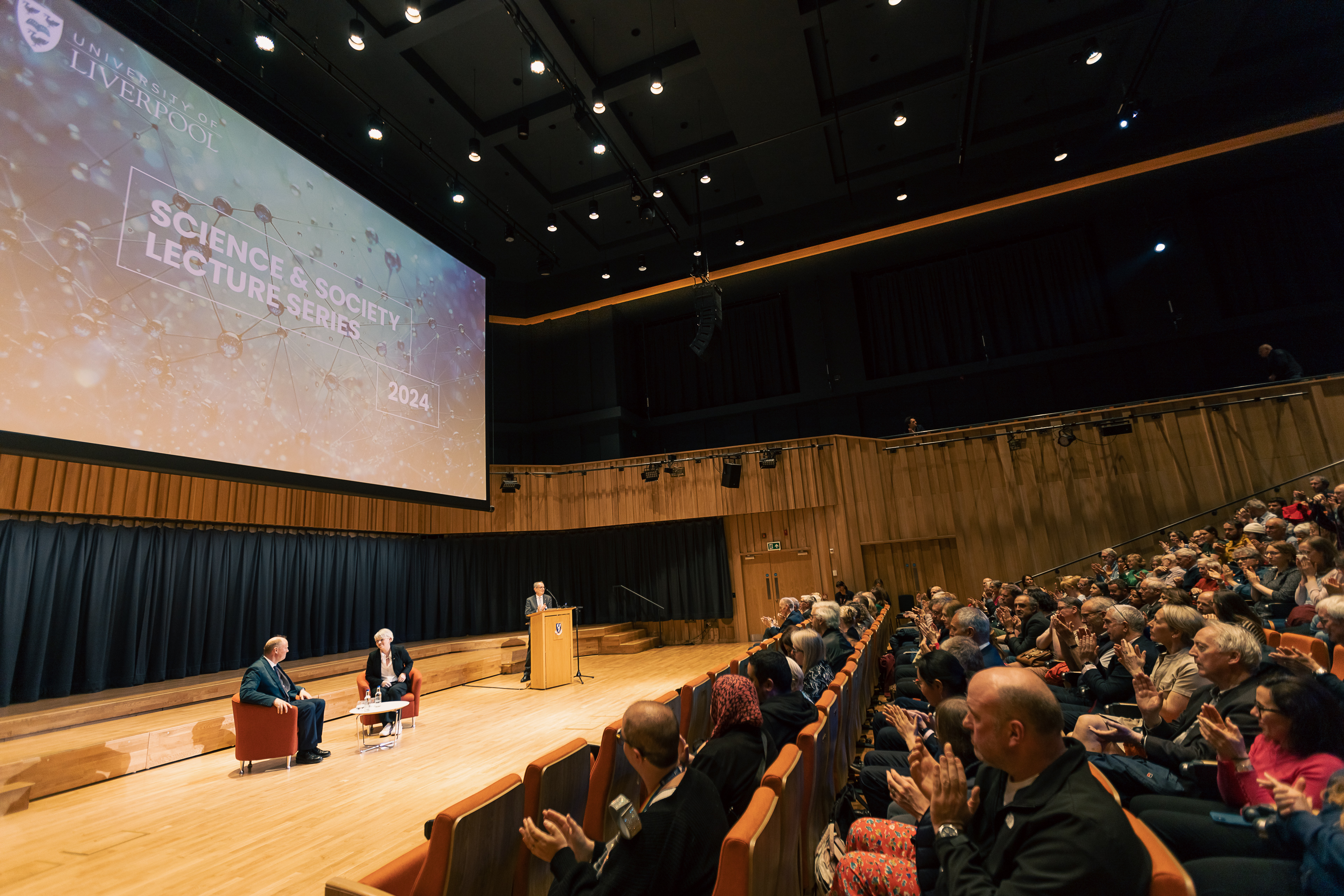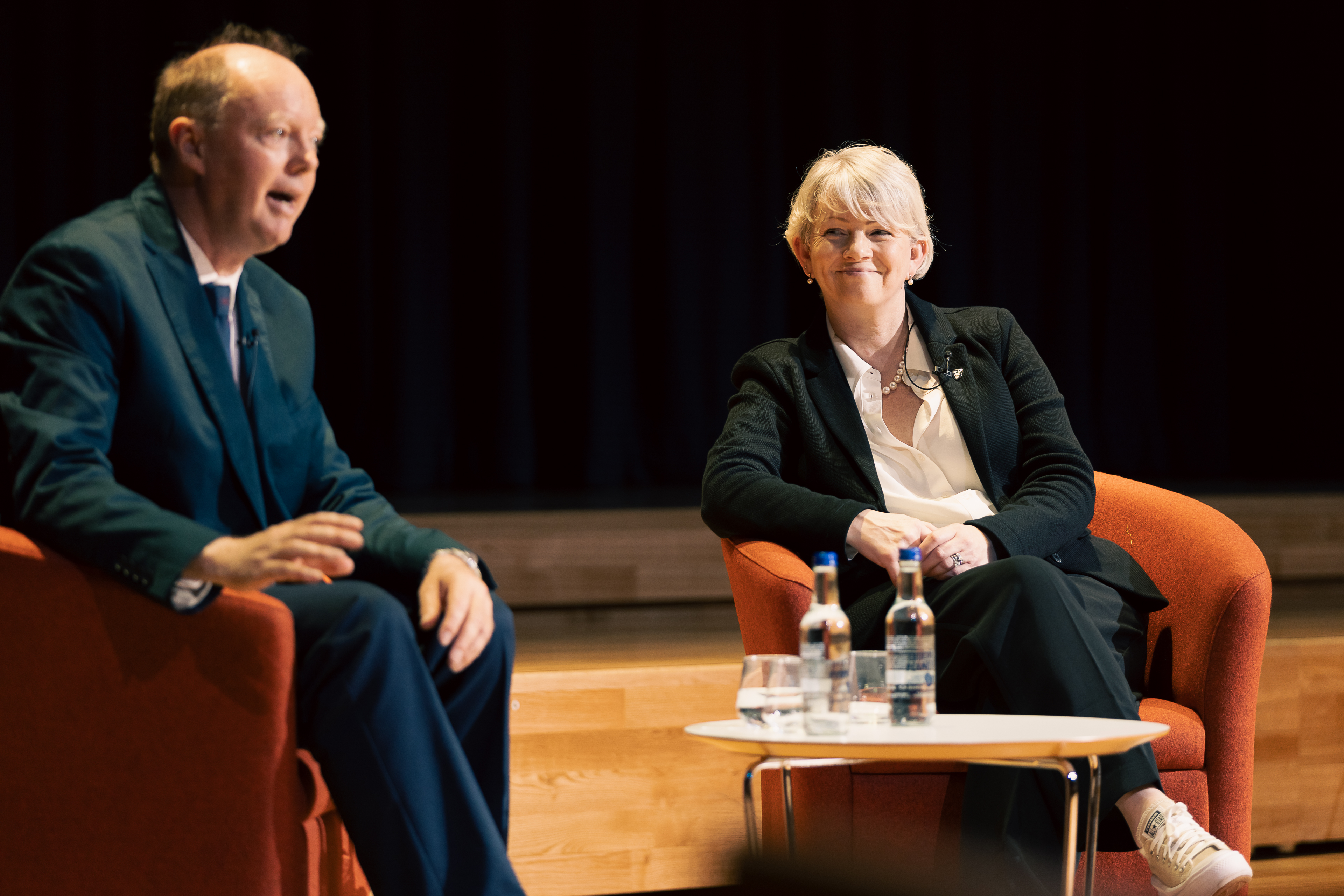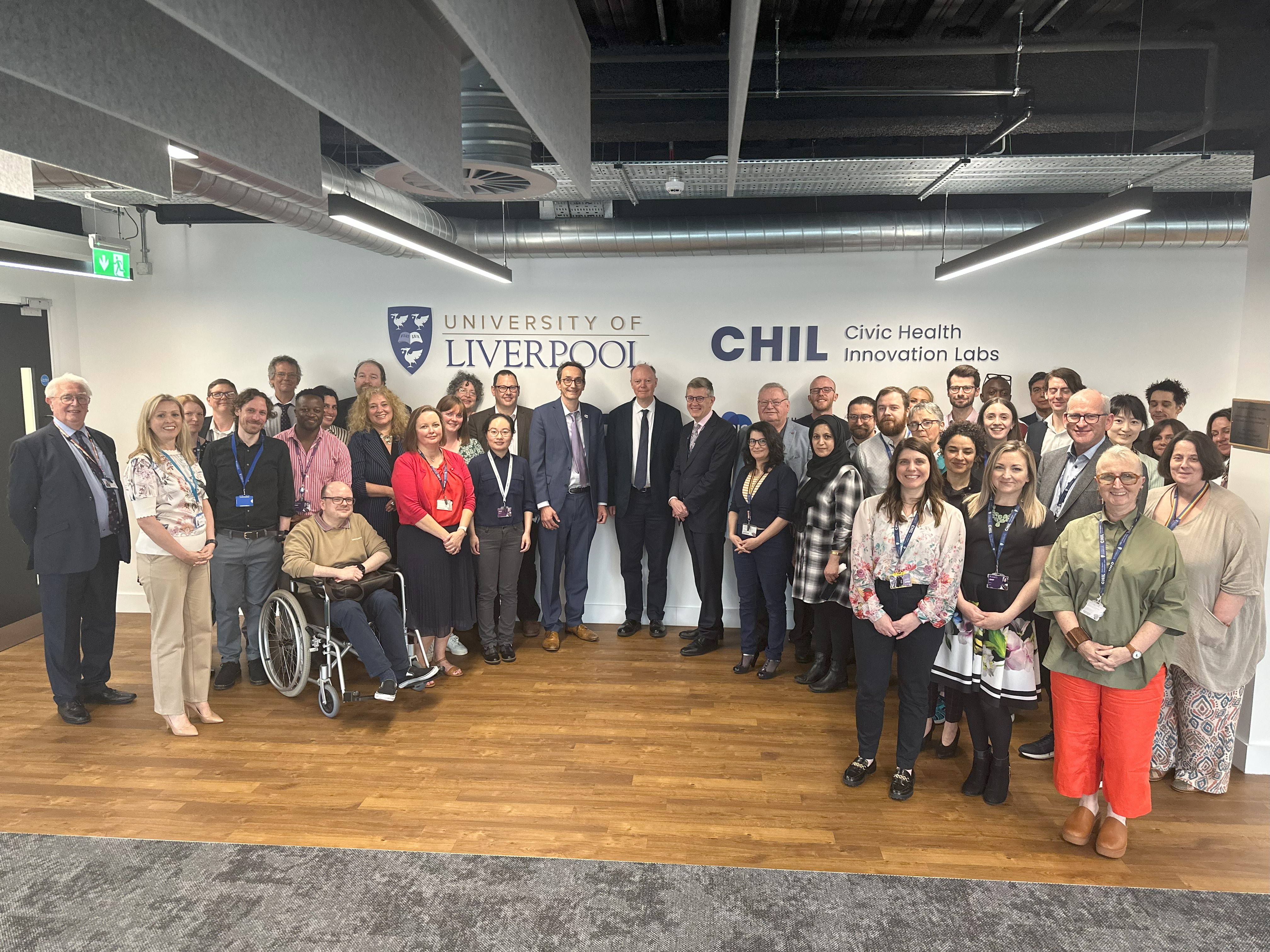
More than 400 people had the opportunity to hear a talk from Chief Medical Officer, Professor Chris Whitty. As part of the University of Liverpool’s Science and Society Lecture Series, Professor Whitty talked about the role of society and the nation state in preventing disease.

Taking place on Thursday 16 May, 2024 at the University’s Tung Auditorium, his talk explored scientific advances and the state’s capacity to take multiple decisions to prevent disease, asking the question – when does society want the state to act in this way? His lecture explored the areas government has historically been perceived to be responsible for, ones where government should have no role, alongside with the actions of health professionals and individuals to protect and improve health.

Prof Chris Whitty with Prof Louise Kenny
Professor Louise Kenny, Executive Pro Vice Chancellor of the Faculty of Health and Life Sciences at the University of Liverpool said: “We have had the pleasure of hearing from many incredible minds at our Science and Society lectures and this was no exception, in fact it was something of a coup.
“We believe knowledge should be celebrated, it should be discussed and debated, and it should be accessible to all. It is through the discussion and dissemination of ideas and knowledge that society is shaped and we were delighted to welcome Professor Chris Whitty to the University to deliver his talk.”
Also during his visit to the city he visited the University’s Civic Health Innovation Labs (CHIL).

Prof Chris Whitty meets team at CHIL
CHIL brings together scientists, engineers, Liverpool City Region residents and health professionals from different disciplines, organisations and lived experiences. Here Professor Whitty heard researchers and public advisers present outlines of more than 40 areas of research that are tackling issues that most affect areas of deprivation in the Liverpool City Region.
CHIL Director, Professor Iain Buchan also illustrated the work at CHIL to tackle the rising burden of mental health conditions, the pressures on health systems from more people living longer, the rising threat of antimicrobial resistance, and preparation for the next pandemic.
Professor Iain Buchan, said “We were honoured to welcome Professor Whitty to hear from CHIL’s civic family of scientists, engineers, public advisers and health professionals – at all career stages – united in tackling problems that hit the most deprived in society hardest. We thank Professor Whitty for visiting us and showing great interest in our work, including projects that addresses combinations of mental and physical health conditions at younger ages, the harms from interacting medications or antimicrobial resistance, and access to care when services are pressured by winters, pandemics or generally tighter resources.”
More about the Civic Health Innovation Labs (CHIL)
CHIL is an interdisciplinary research centre tackling global health challenges with civic data and technology while driving positive change for the people of the Liverpool City Region.
CHIL builds on the momentum of global innovation Liverpool delivered in the COVID-19 pandemic where insights and interventions used linked data and analytics to coordinate impactful civic actions. Addressing the gap in community-based and system-wide mental health research, the University works in partnership with Mersey Care. Together they created NIHR’s Mental Health Research for Innovation Centre (M-RIC). Mersey Care is a core founding partner in CHIL, where M-RIC is headquartered.
In medicines, CHIL enables the University’s world-leading clinical pharmacology research to expand into AI to optimise medicines, tackling the problems patients with multiple conditions on multiple medicine face.
Crucially, CHIL embeds public health researchers in the development of the AI applications being used by NHS, local government, and other civic partners for population health management. These include the Cheshire and Merseyside’s Data-into-Action programme and the Liverpool City Region Civic Data Cooperative (CDC), which are headquartered at CHIL.
The Science and Society Lecture Series
These lectures are aimed at a wide audience from the university and neighbouring institutions, as well as members of the public. The lectures reflect upon the inter-dependencies of Science and Society and are part of the university’s efforts in communicating the impact of science.
A wide variety of topics have been discussed since the start of the series – from renewable energies; space exploration and crystallography; to global health; challenges of an ageing population and nanotechnologies. Broader societal topics have also been discussed including, women in science; breadth in a modern university education; impact of UNESCO on scientific world and society at large.
Professor Chris Whitty
Professor Chris Whitty is Chief Medical Officer (CMO) for England, the UK government’s Chief Medical Adviser and head of the public health profession.
He is a practising NHS Consultant Physician at University College London Hospitals (UCLH) and the Hospital for Tropical Diseases, and a visiting professor at Gresham College.
Chris is an epidemiologist and has undertaken research and worked as a doctor in the UK, Africa and Asia, including in Malawi alongside the Malawi-Liverpool Wellcome unit. He was Professor of Public and International Health at the London School of Hygiene and Tropical Medicine (LSHTM) before becoming CMO and remains an honorary professor there.
Chris was the Chief Scientific Adviser for the Department of Health and Social Care from January 2016 to August 2021, with overall responsibility for the department’s research and development, including being head of the National Institute for Health Research (NIHR), the government’s major funder of clinical, public health, social care and translational research.